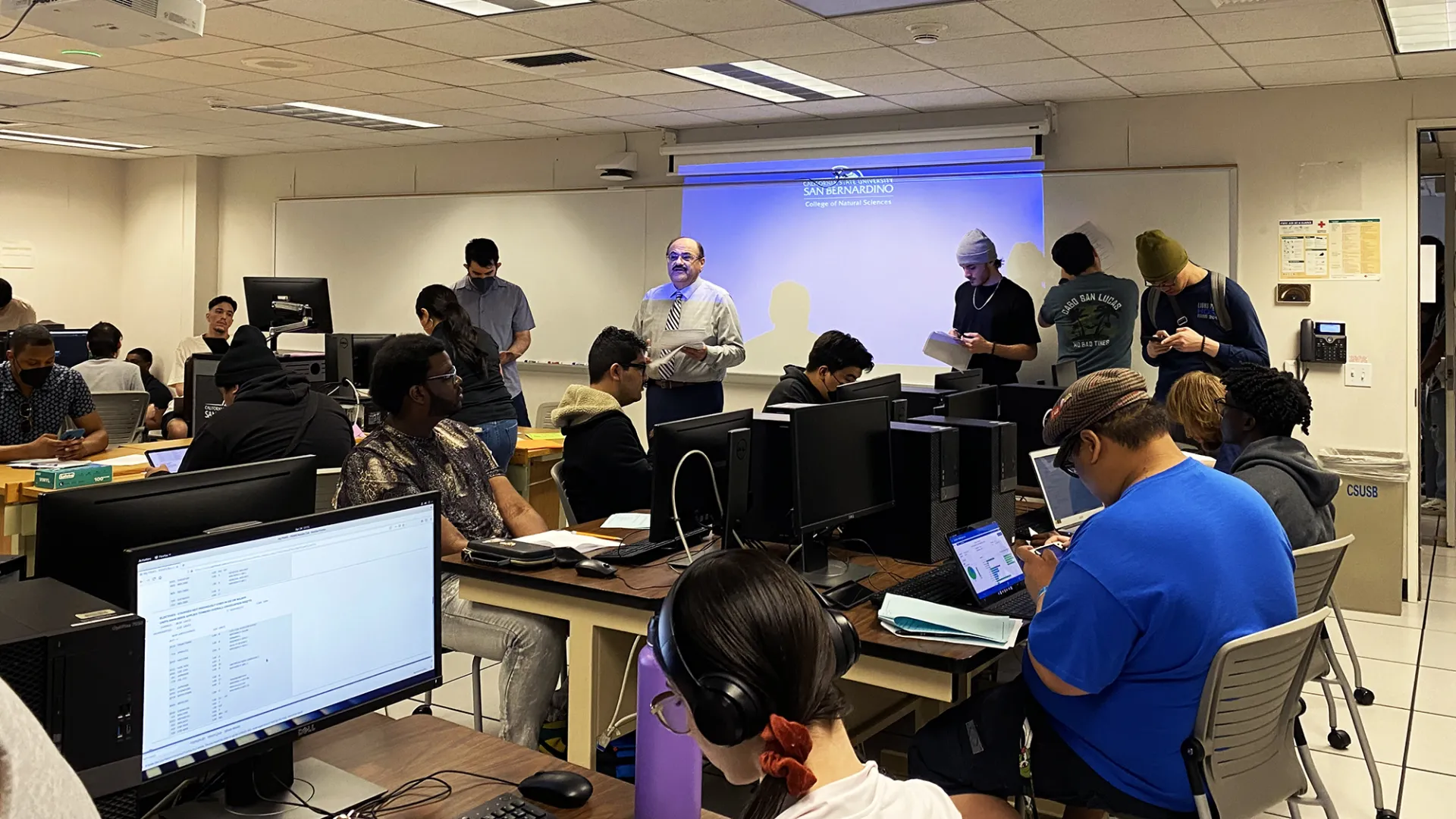Alan Llavore | Office of Strategic Communication | (909) 537-5007 | allavore@csusb.edu

The National Science Foundation (NSF) has awarded Cal State San Bernardino a $2.5 million grant that will establish the Experiential Computing and Engaged Learning Scholarships (ExCELS) program, aimed at providing scholarships, mentorships and experiential learning opportunities for low-income and underrepresented students, and to meet a growing need for talented computer professionals in the region.
“This is a very timely and significant grant to train future leaders in science in the era of big data and artificial intelligence,” said Sastry G. Pantula, dean of College of Natural Sciences. “This $2.5 million grant provides access, mentoring, financial support, and high impact practices for the success of our talented students from the Inland Empire and is a recognition of our outstanding faculty.”
“We are very proud of this competitive grant achievement form the National Science Foundation. We are responding to the national need for well-educated graduates including Southern California,” said Khalil Dajani, director/chair of CSUSB’s School of Computer Science and Engineering. “The grant will provide us with additional means to support retention and degree completion of high-achieving, low-income students with demonstrated financial need.”
Added Yunfei Hou, associate professor of computer science and engineering and the grant’s principal investigator, “With the grant, we will provide 150 scholarships over five years to low-income students studying computer science at CSUSB. Our goal is to empower our students with the skills, support, and opportunities they need to succeed, allowing them to contribute to the growing computing industry in the Inland Empire.”
Specifically, over the grant’s five-year duration, the scholarships will be awarded each year to cohorts of 30 students who have demonstrated financial need and who are pursuing degrees in computing at CSUSB.
The primary objectives of the ExCELS program are:
- To increase the retention and graduation of low-income undergraduate students by providing scholarships to minimize their economic barriers
- To transform the introduction to programming courses with culturally responsive and active learning pedagogical techniques
- To develop a summer research program that provides guided research opportunities for low-income undergraduate students
- To expand and sustain a quarterly forum that brings together technology companies, policymakers and thought leaders, enabling students to participate in local community-based experiential learning opportunities
These measures will foster an inclusive and diverse computational sciences workforce in the Inland Empire region and beyond, aligning with the NSF’s mission.
The research component of ExCELS will assess the impact of the scholarship program on low-income computing students’ retention, academic success and degree completion. It will also explore how engaged learning and mentoring influence students’ interest in pursuing research experiences and careers. The research will develop effective strategies for overcoming economic barriers, integrating experiential and engaged learning pedagogies, and fostering a sense of belonging among low-income students in the computational sciences.
Along with Hou and Dajani (co-principal investigator), the team overseeing the grant includes co-principal investigators José Muñoz, professor of sociology; Qingquan Sun, professor of computer science and engineering; Yan Zhang, associate professor of computer science and engineering; senior personnel Frank A. Gomez from the Office of the Chancellor, California State University; and external evaluator Heather Macias, assistant professor, teacher education, Cal State Long Beach.
ExCELS is funded by NSF’s Scholarships in Science, Technology, Engineering, and Mathematics program, which seeks to increase the number of low-income academically talented students with demonstrated financial need who earn degrees in STEM fields. It also aims to improve the education of future STEM workers, and to generate knowledge about academic success, retention, transfer, graduation and academic/career pathways of low-income students.